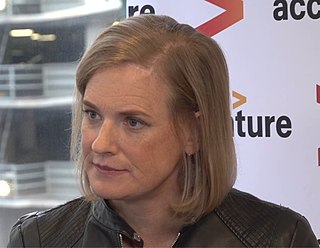A Quote by Rana el Kaliouby
The real problem is not the existential threat of AI. Instead, it is in the development of ethical AI systems.
Quote Topics
Related Quotes
There are two companies that the AI Fund has invested in - Woebot and Landing AI - and the AI Fund has a number of internal teams working on new projects. We usually bring in people as employees, work with them to turn ideas into startups, then have the entrepreneurs go into the startup as founders.
There's a great phrase, written in the '70s: 'The definition of today's AI is a machine that can make a perfect chess move while the room is on fire.' It really speaks to the limitations of AI. In the next wave of AI research, if we want to make more helpful and useful machines, we've got to bring back the contextual understanding.



























